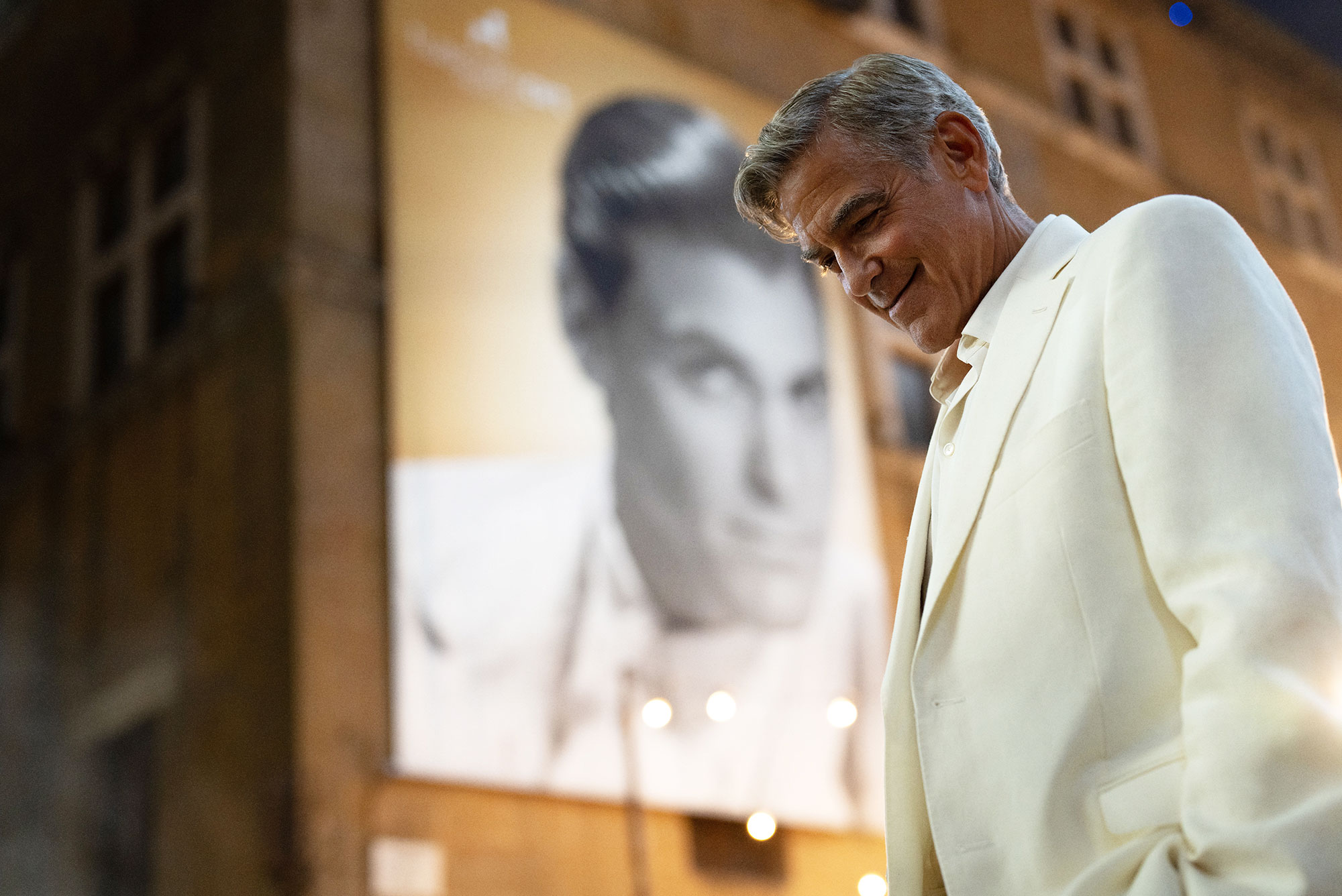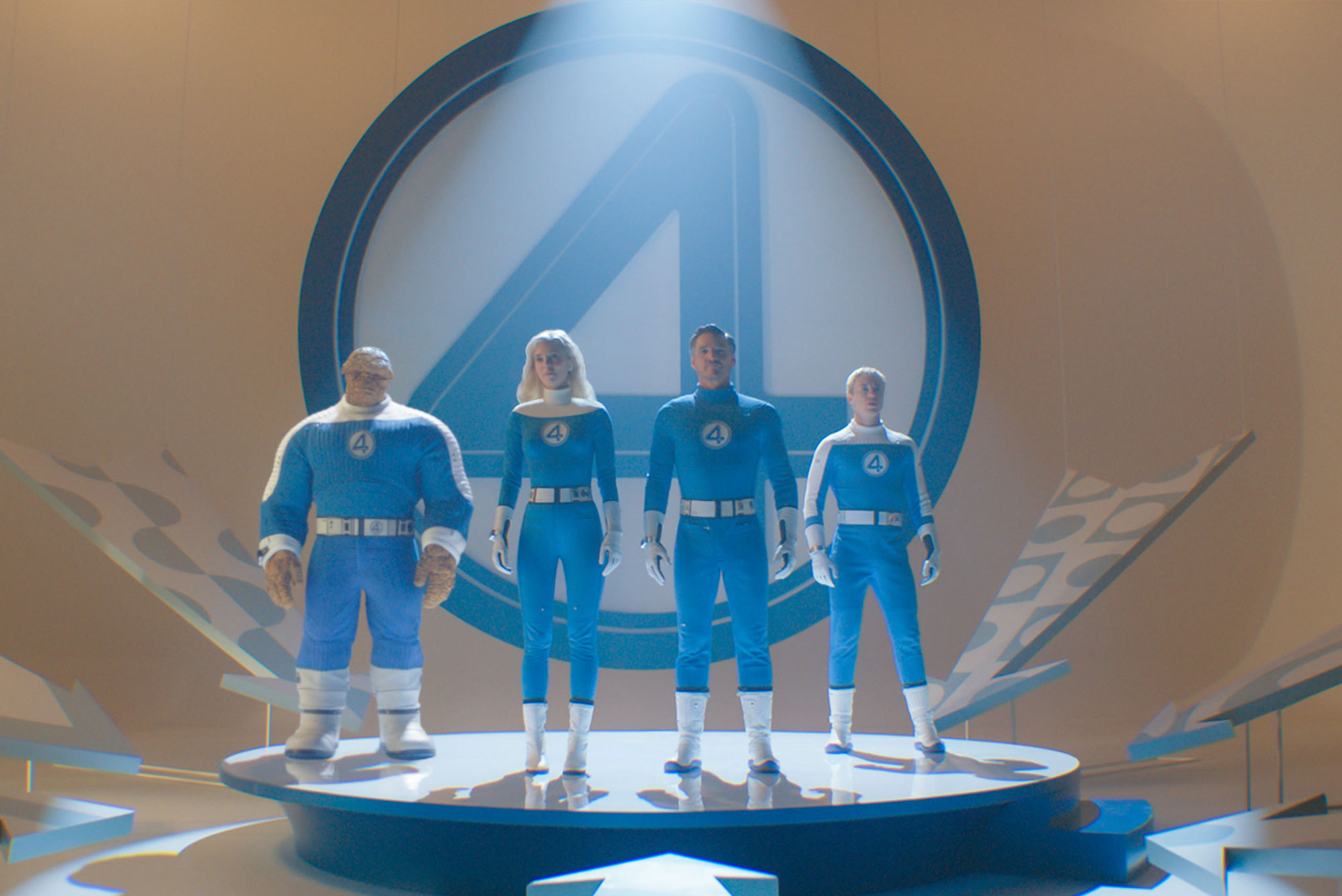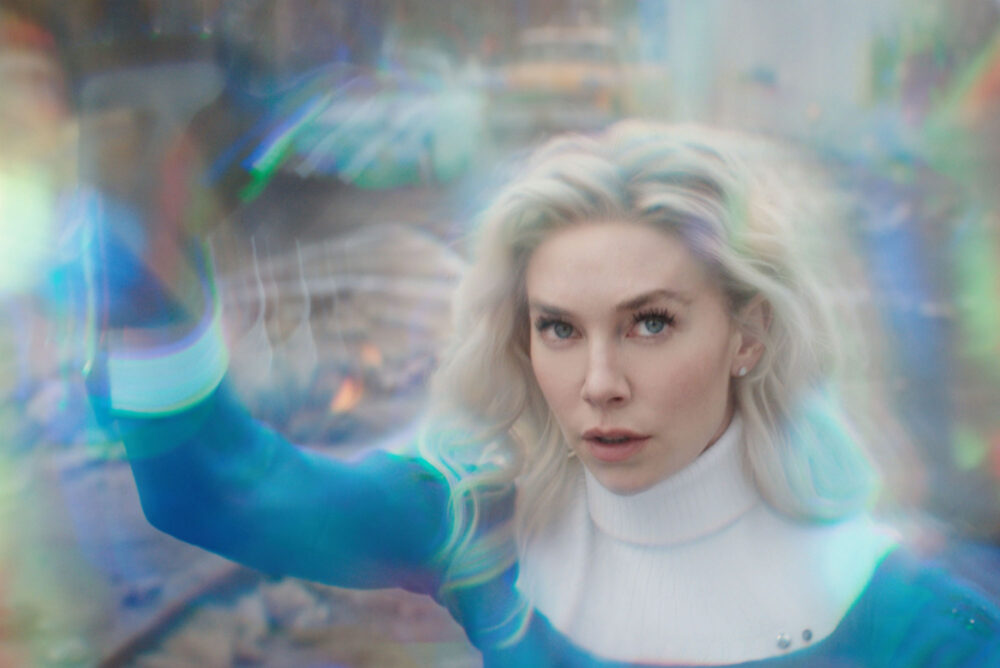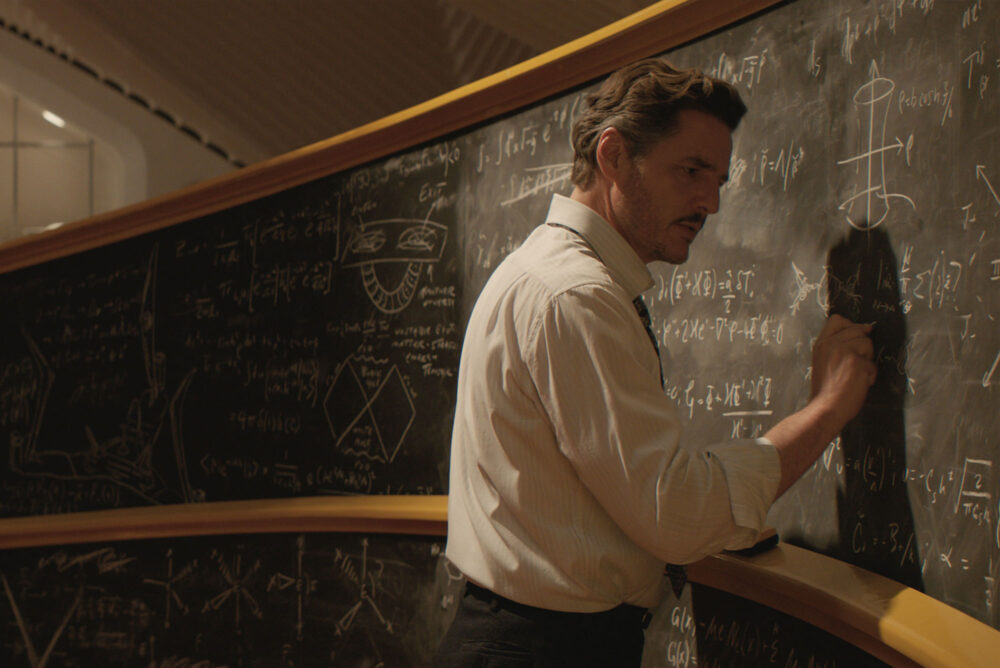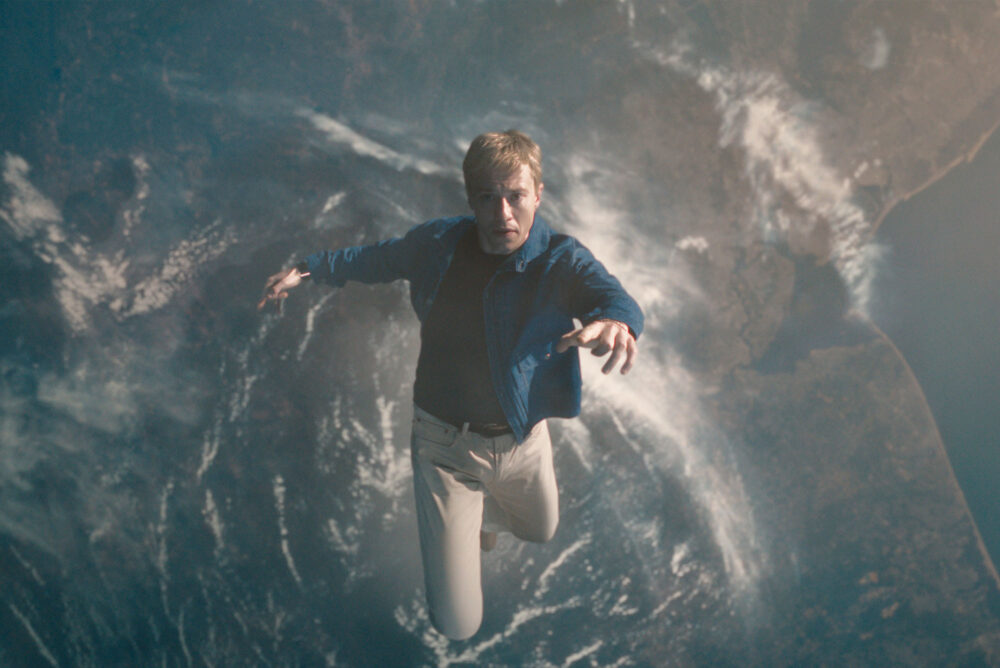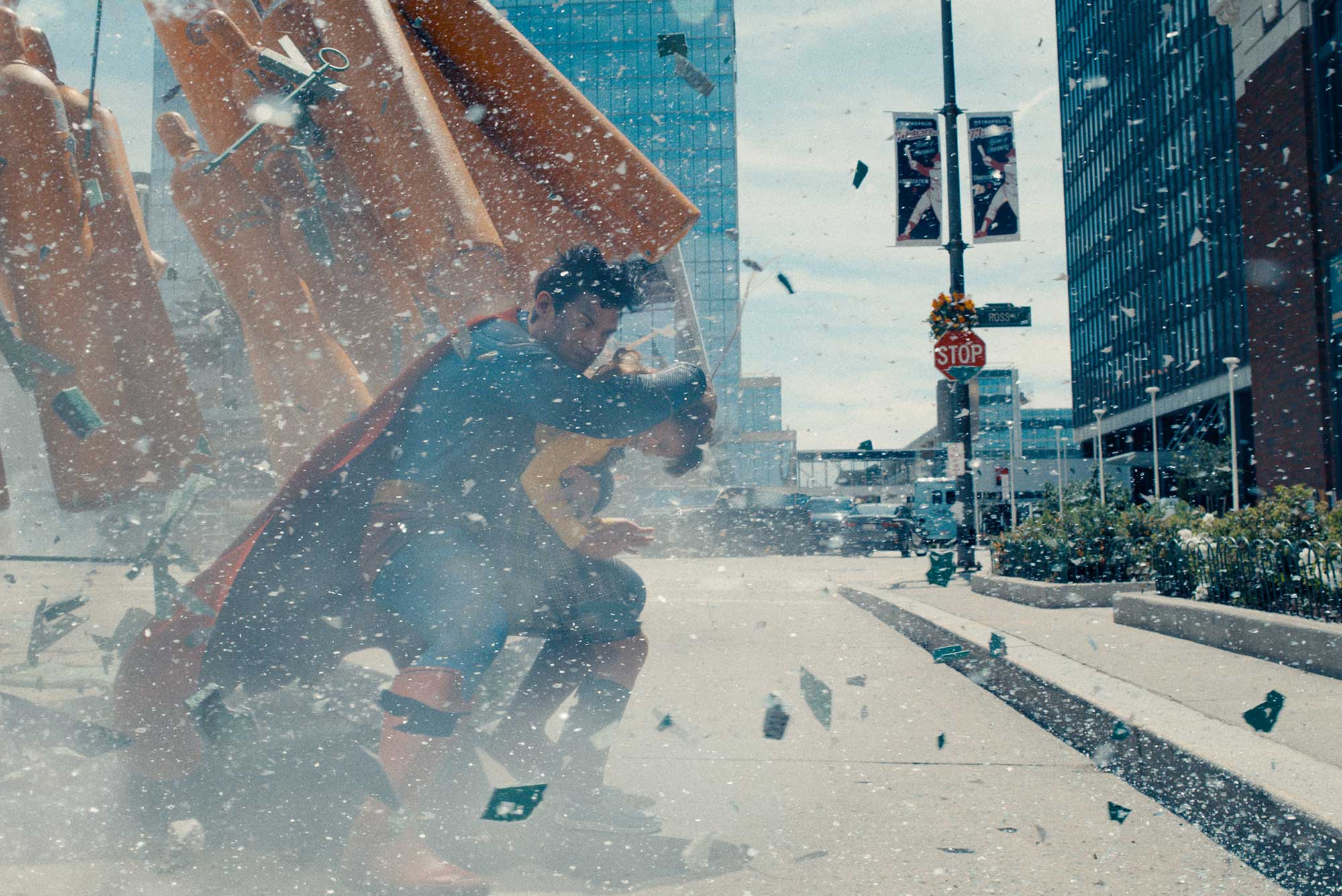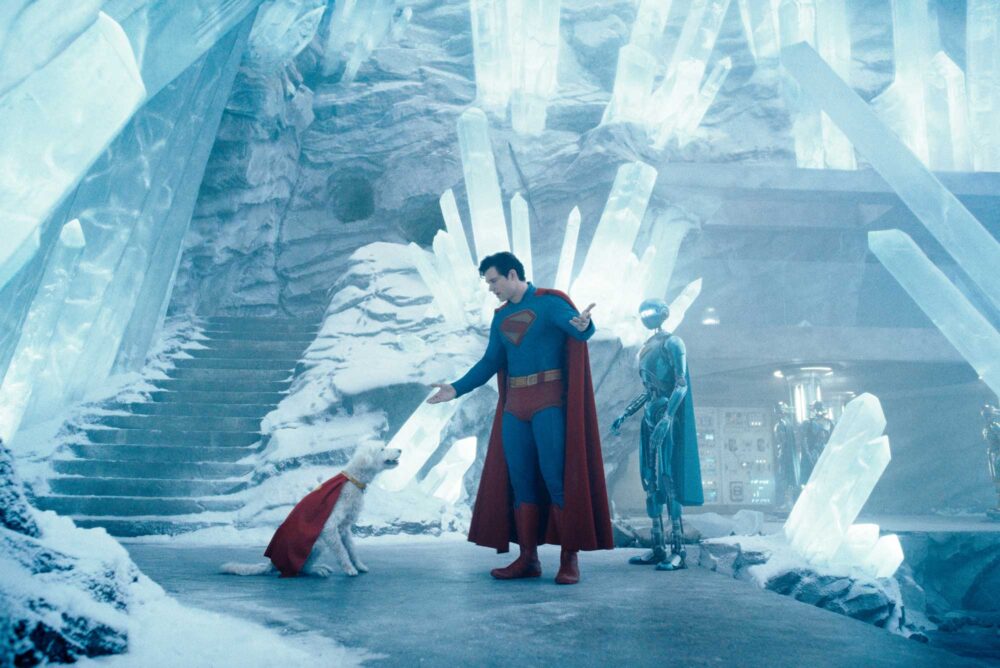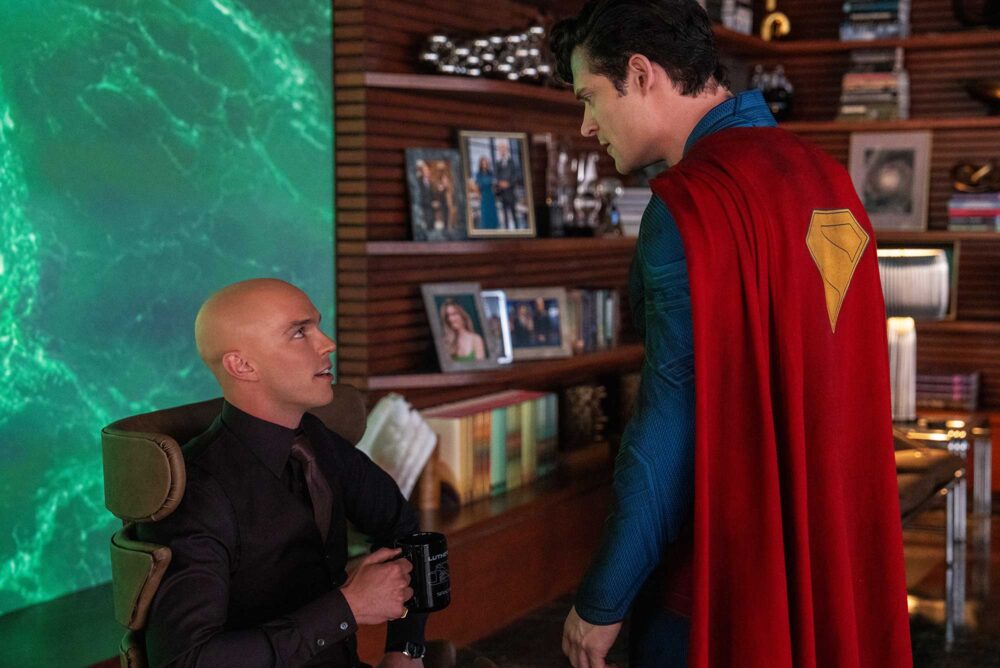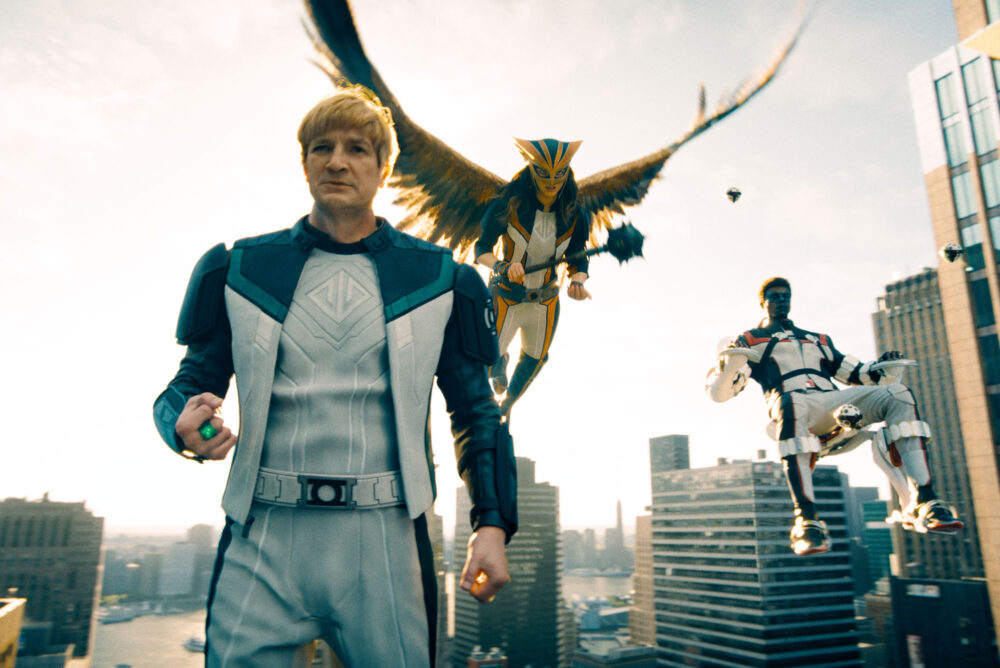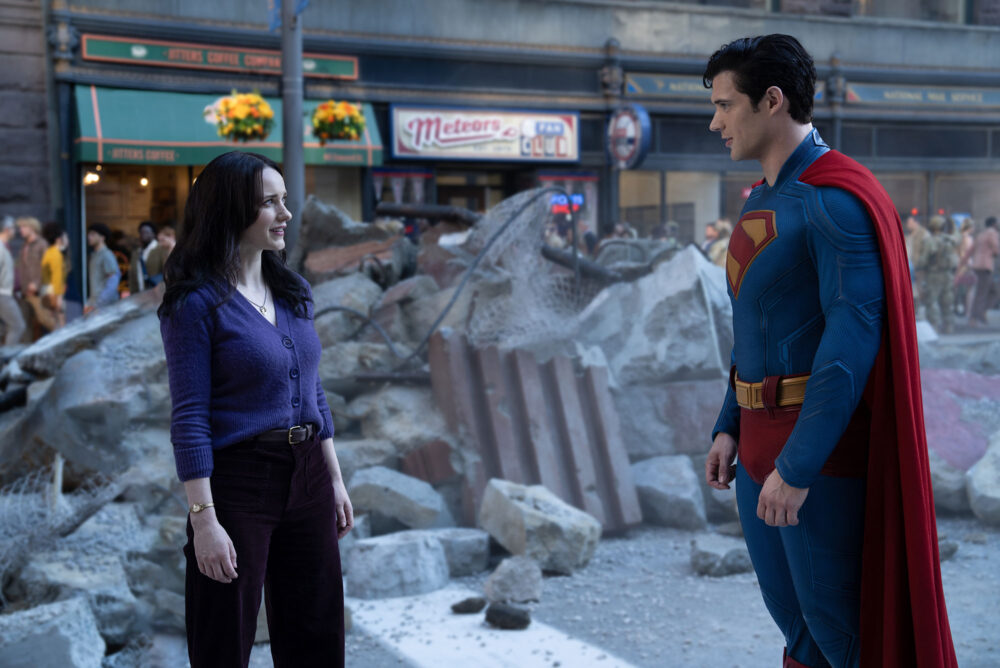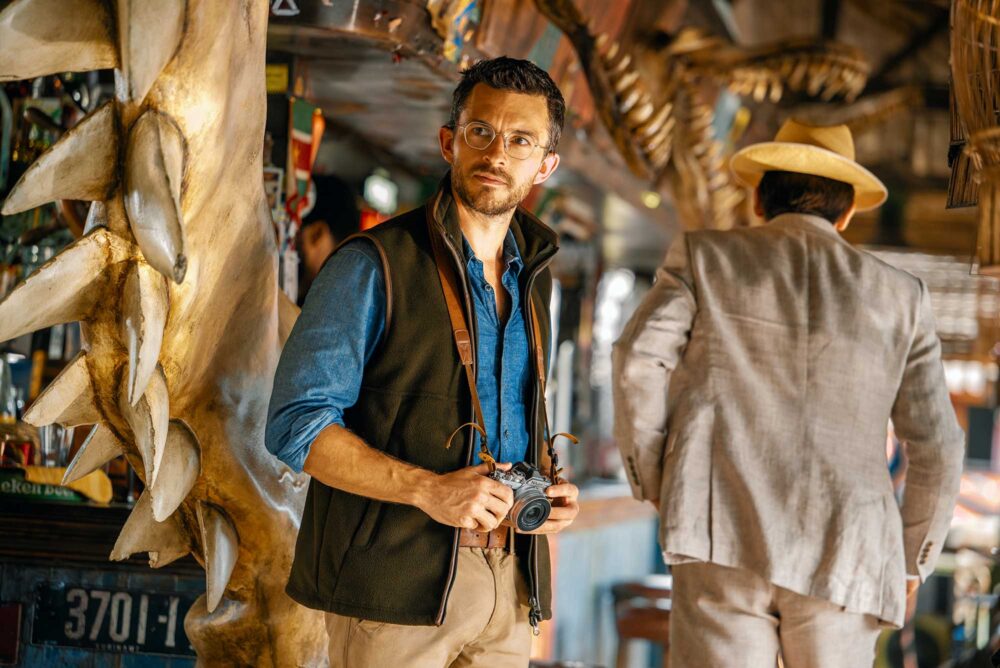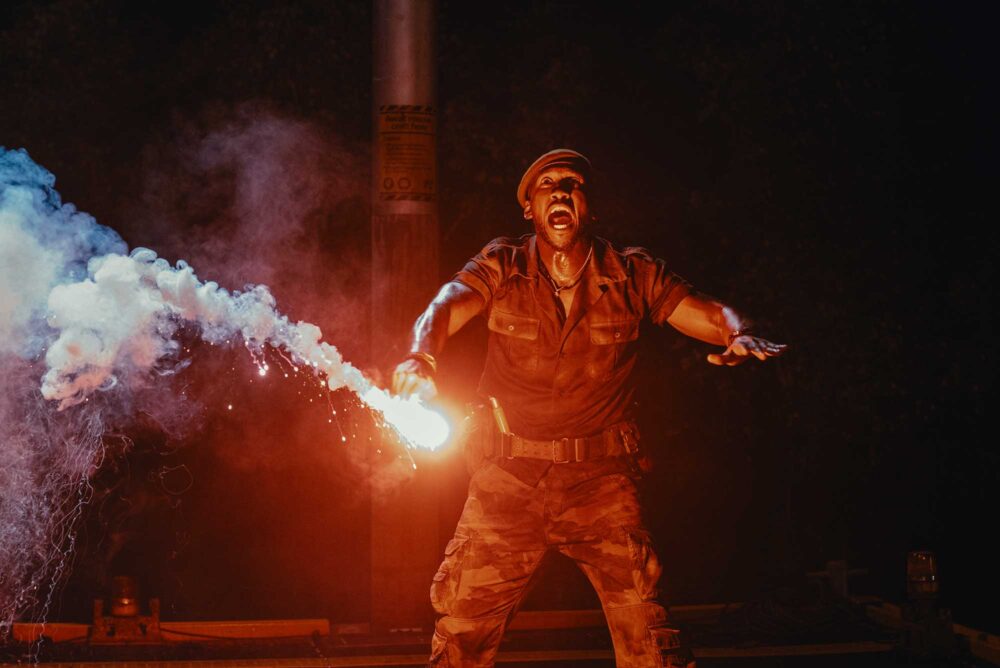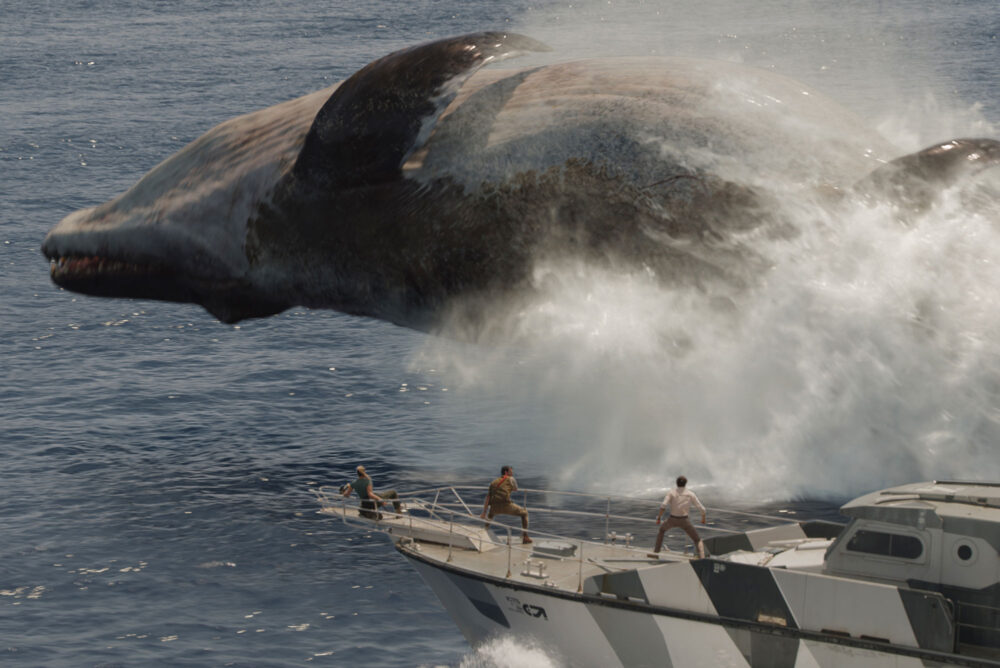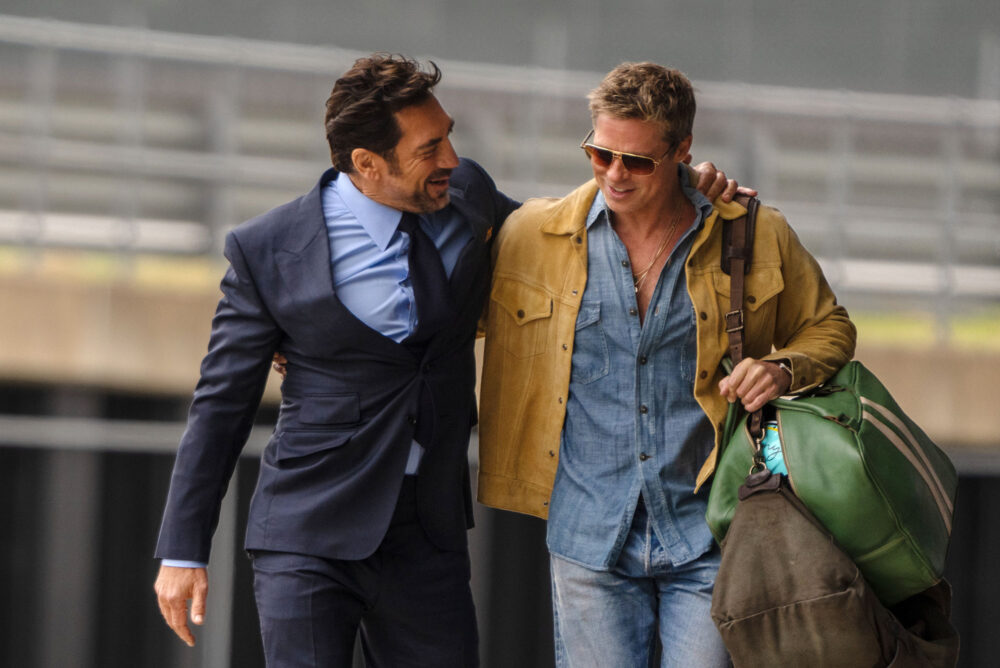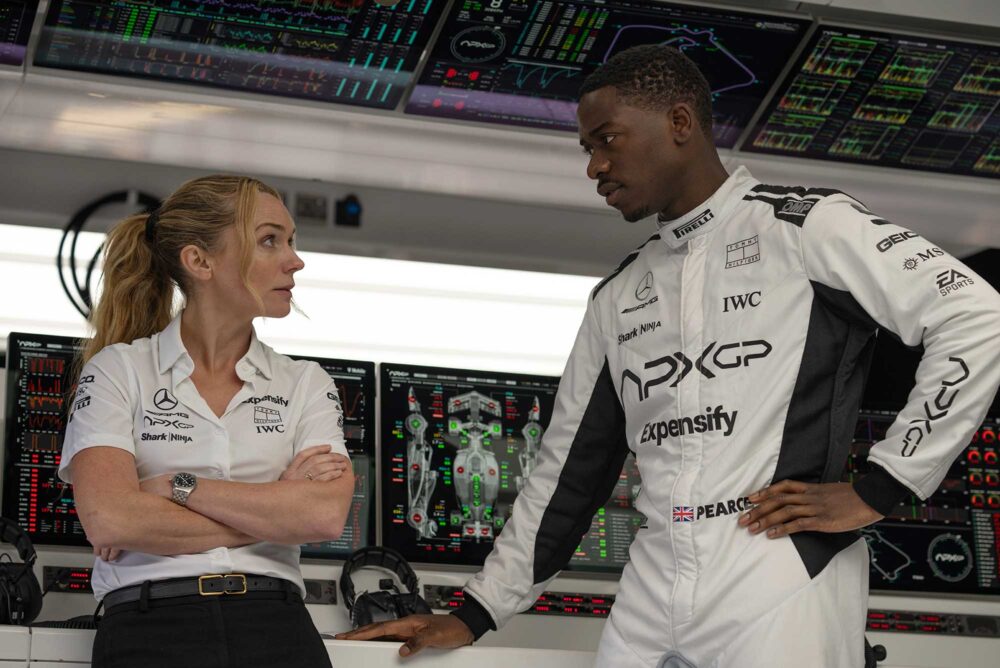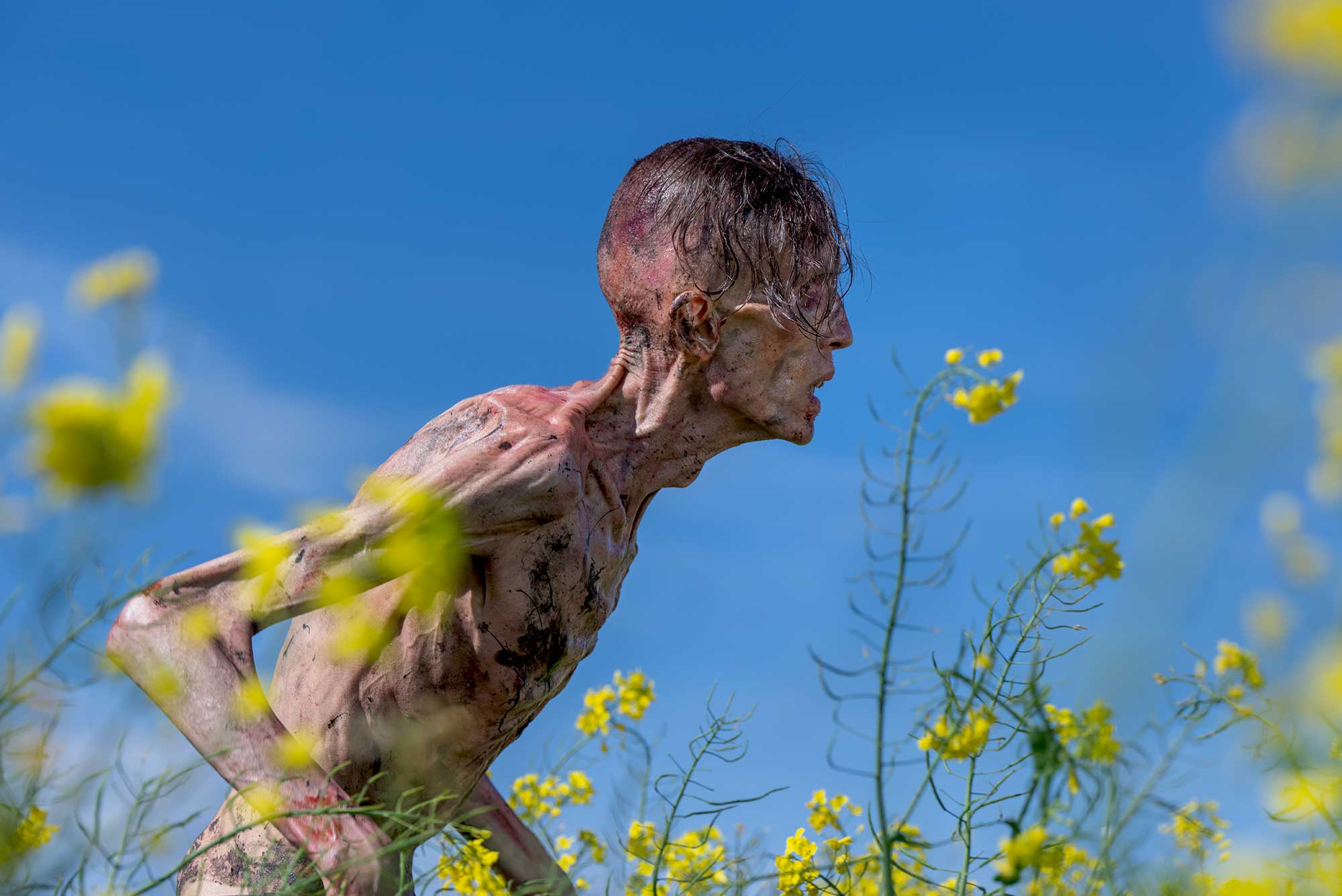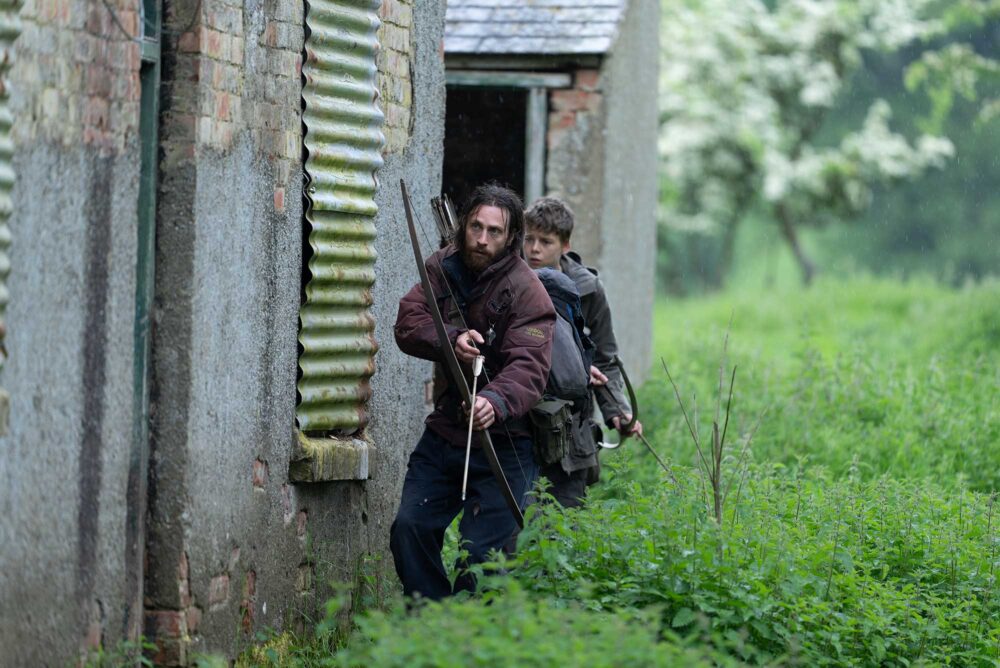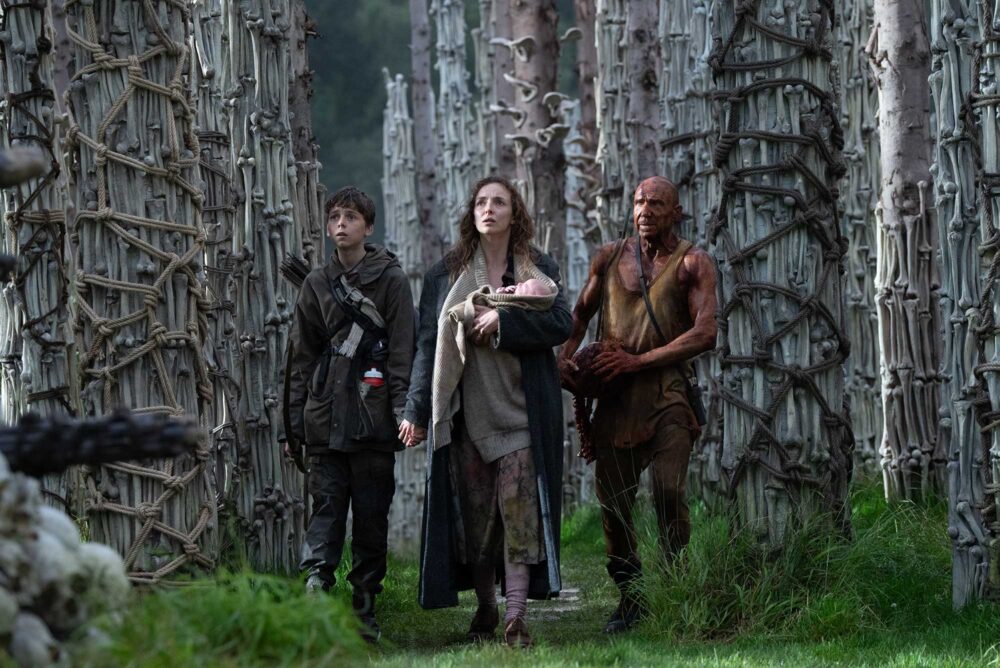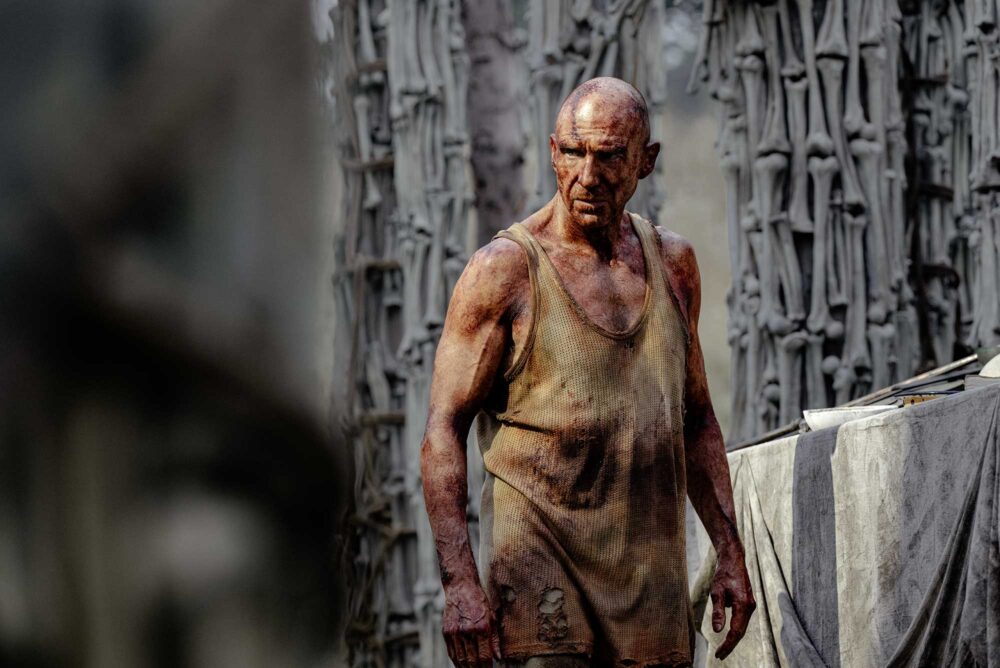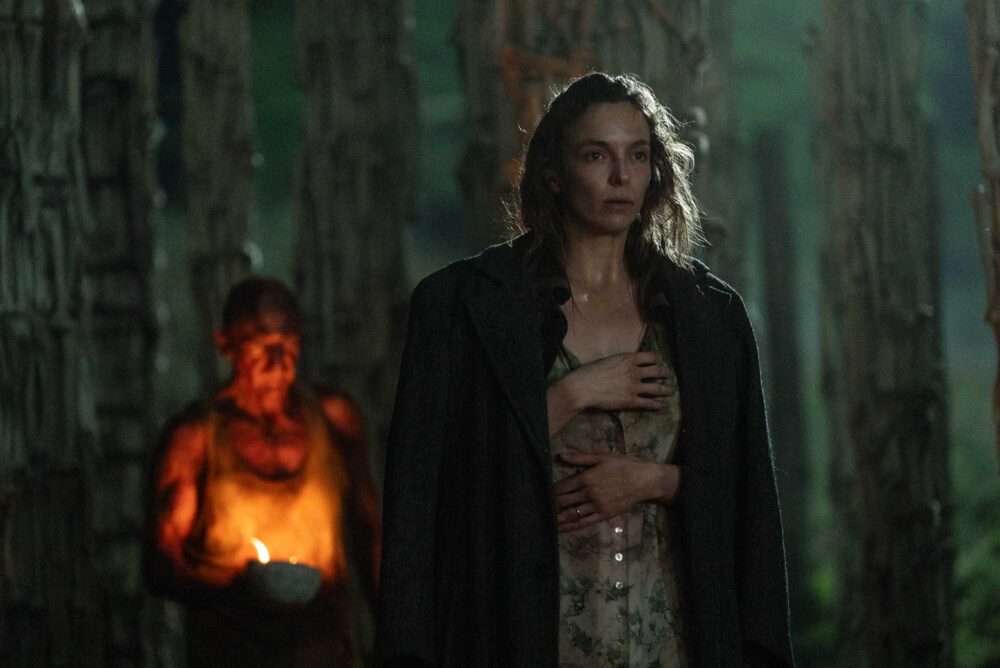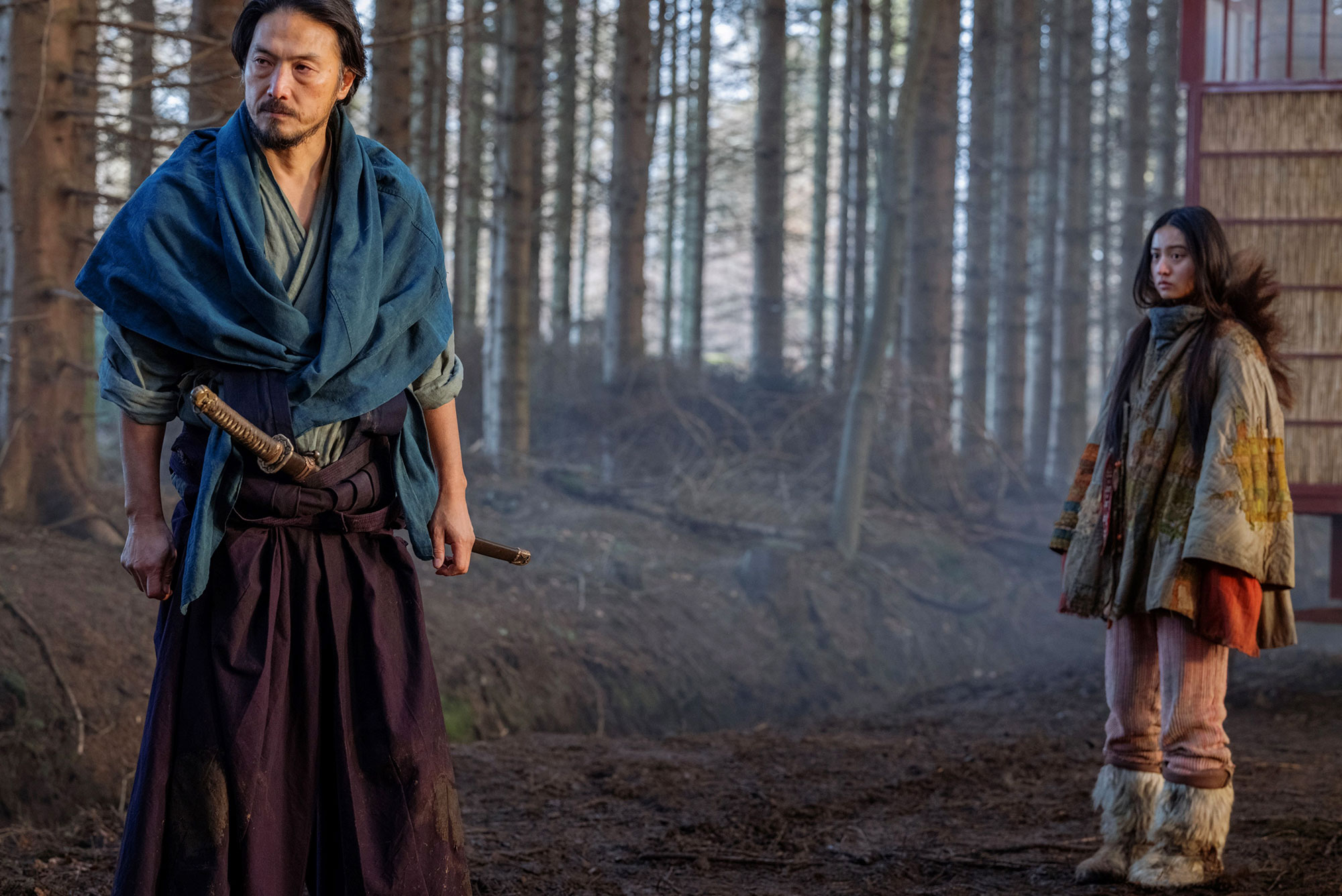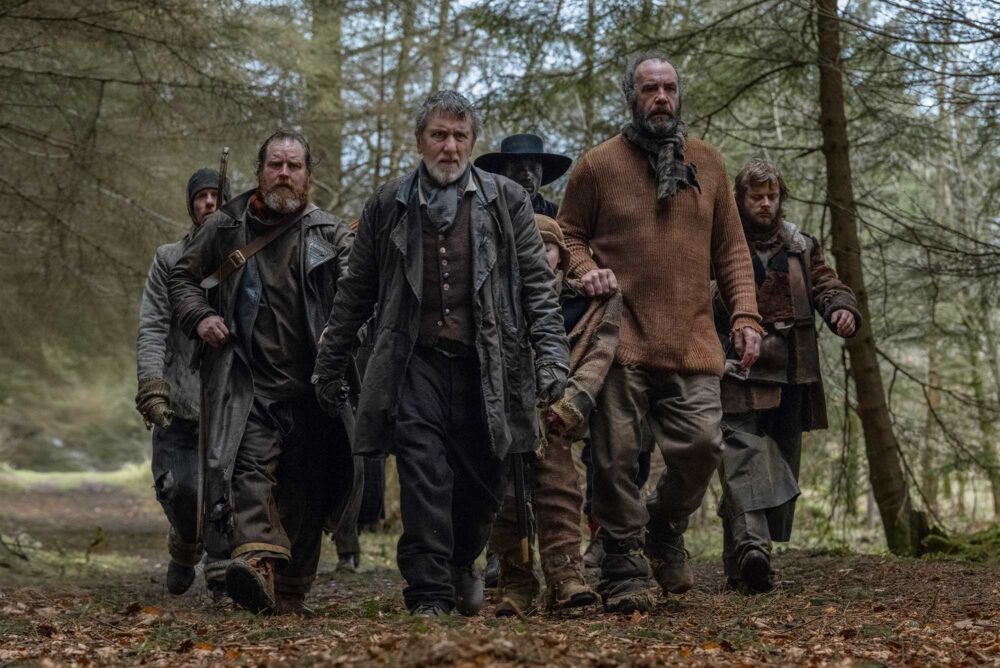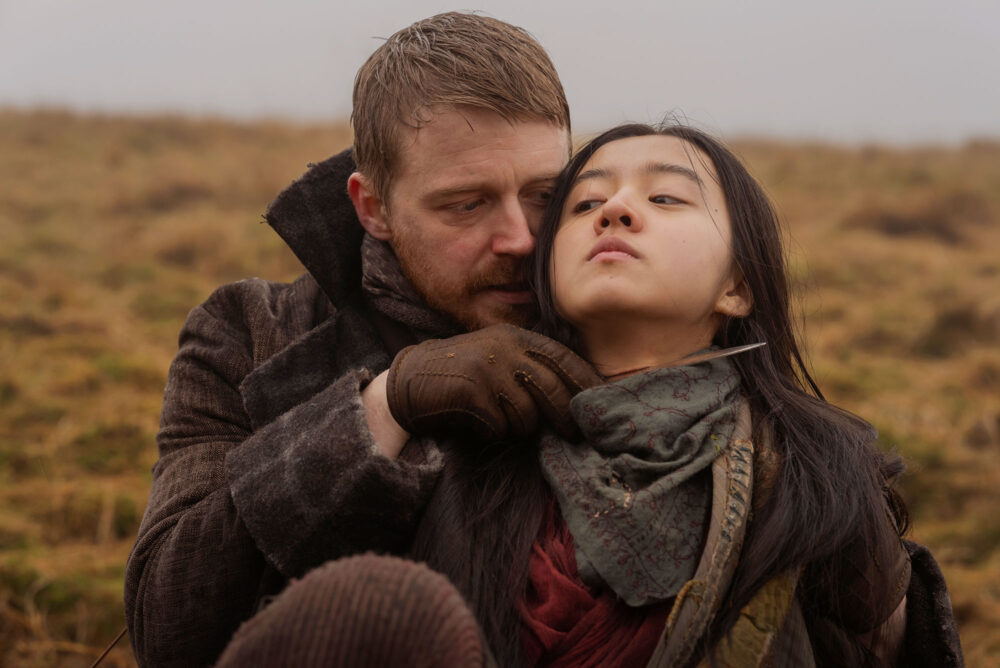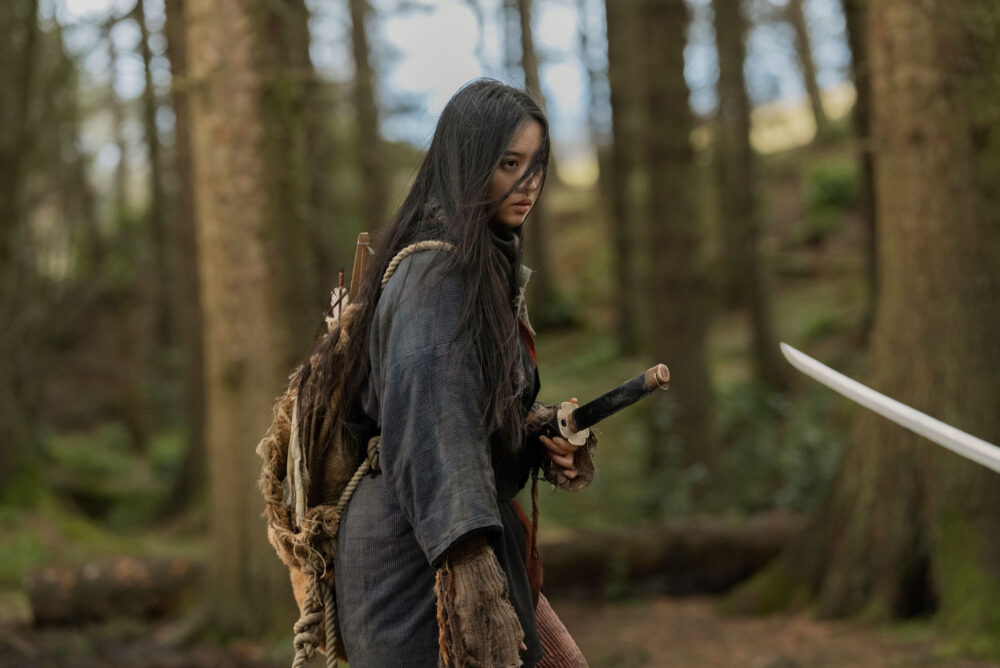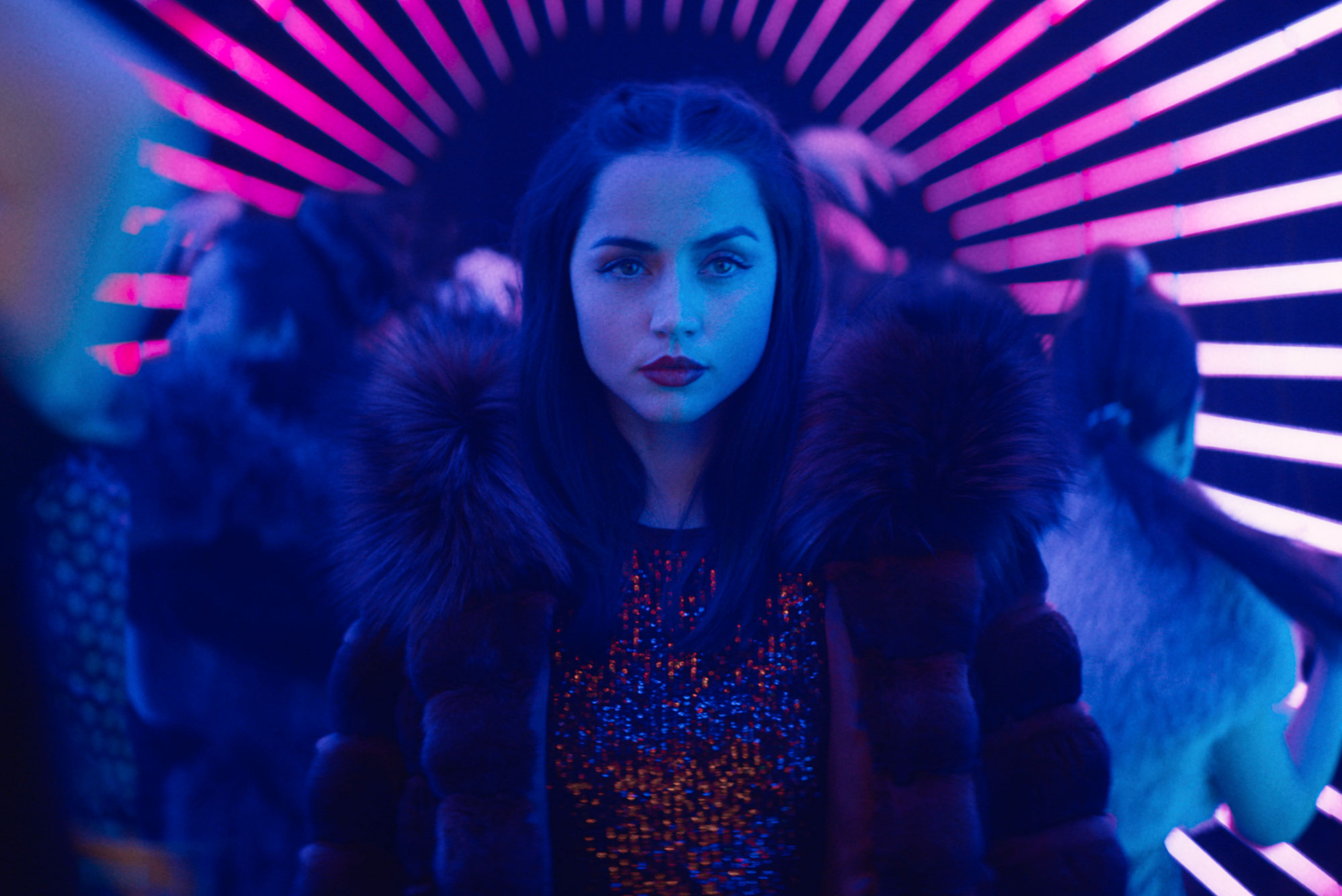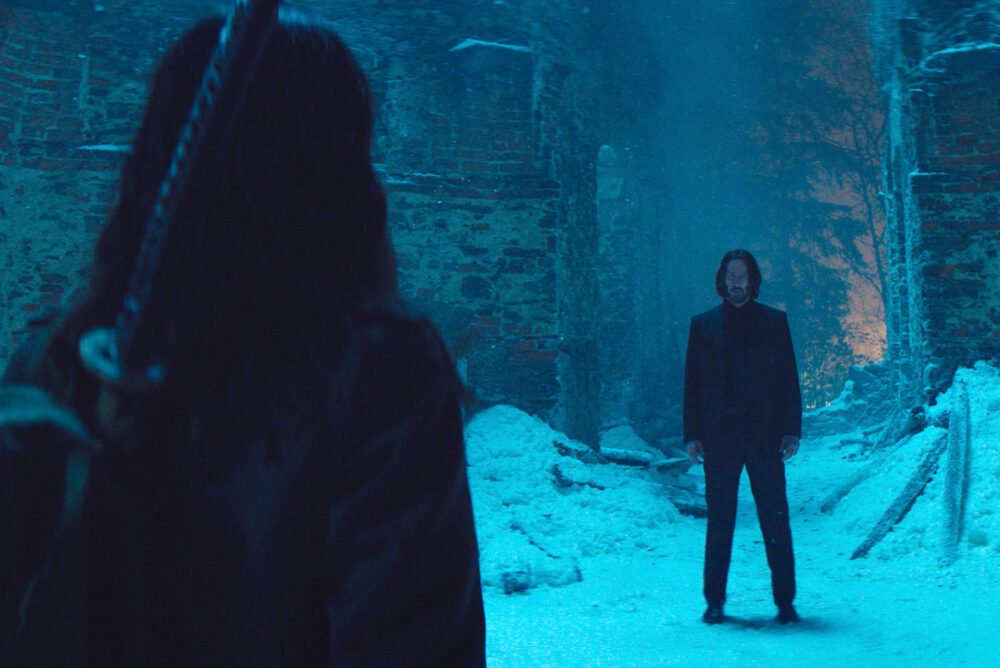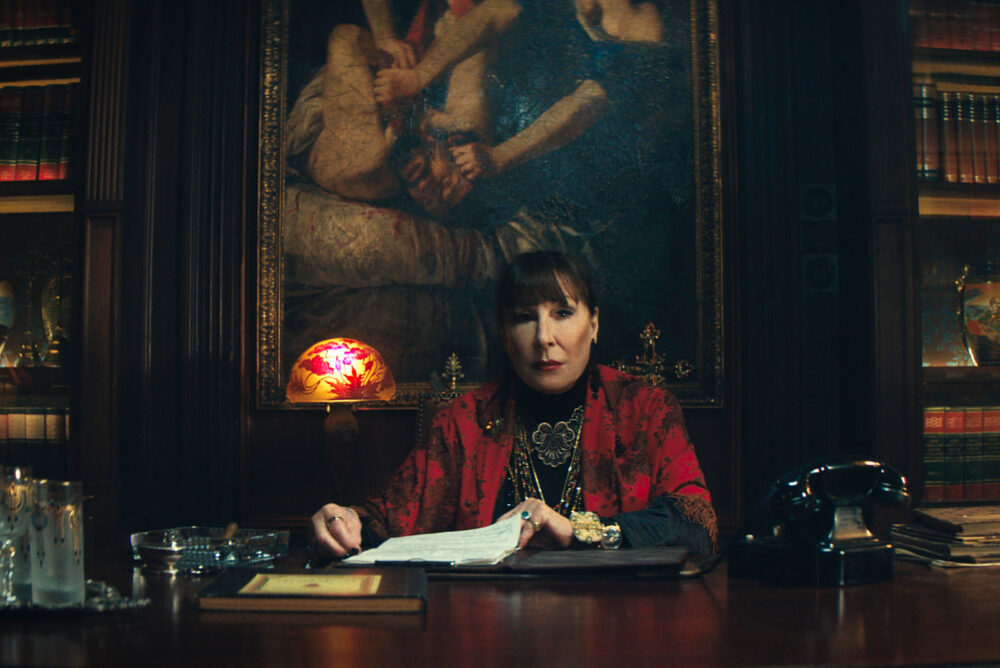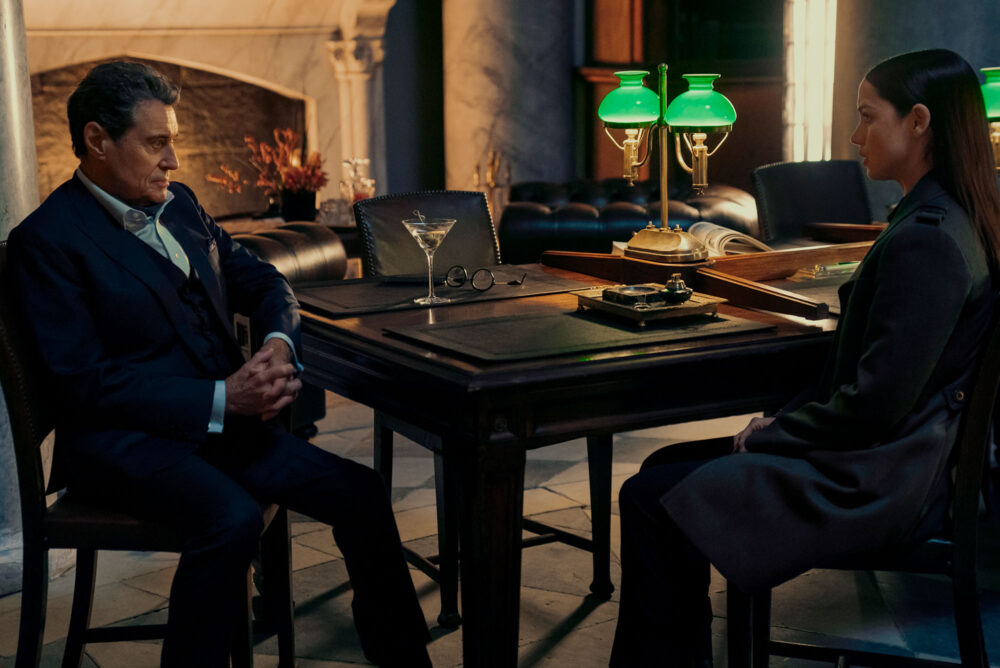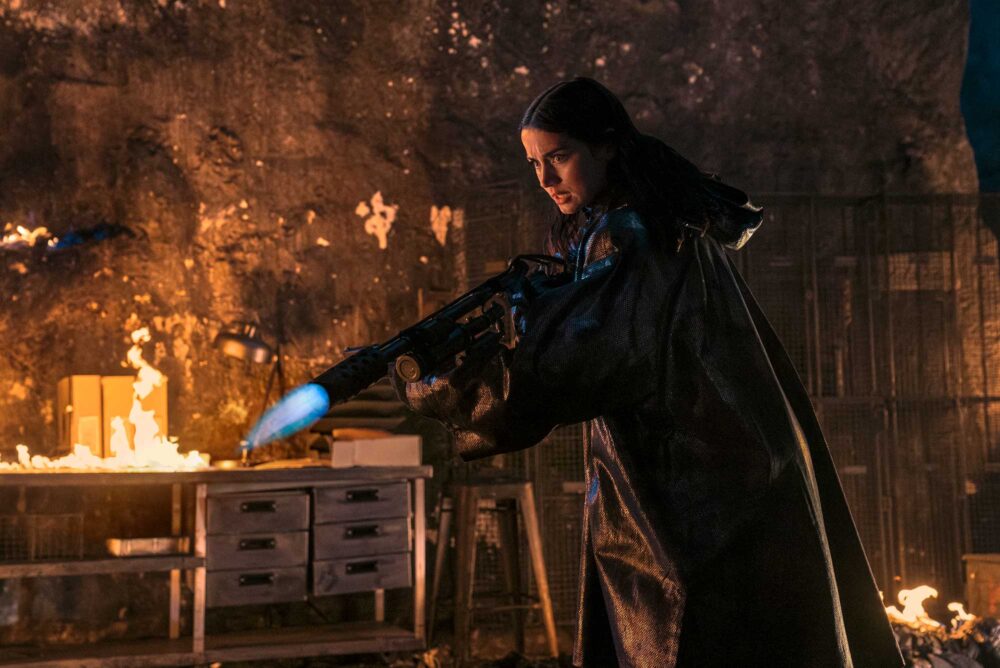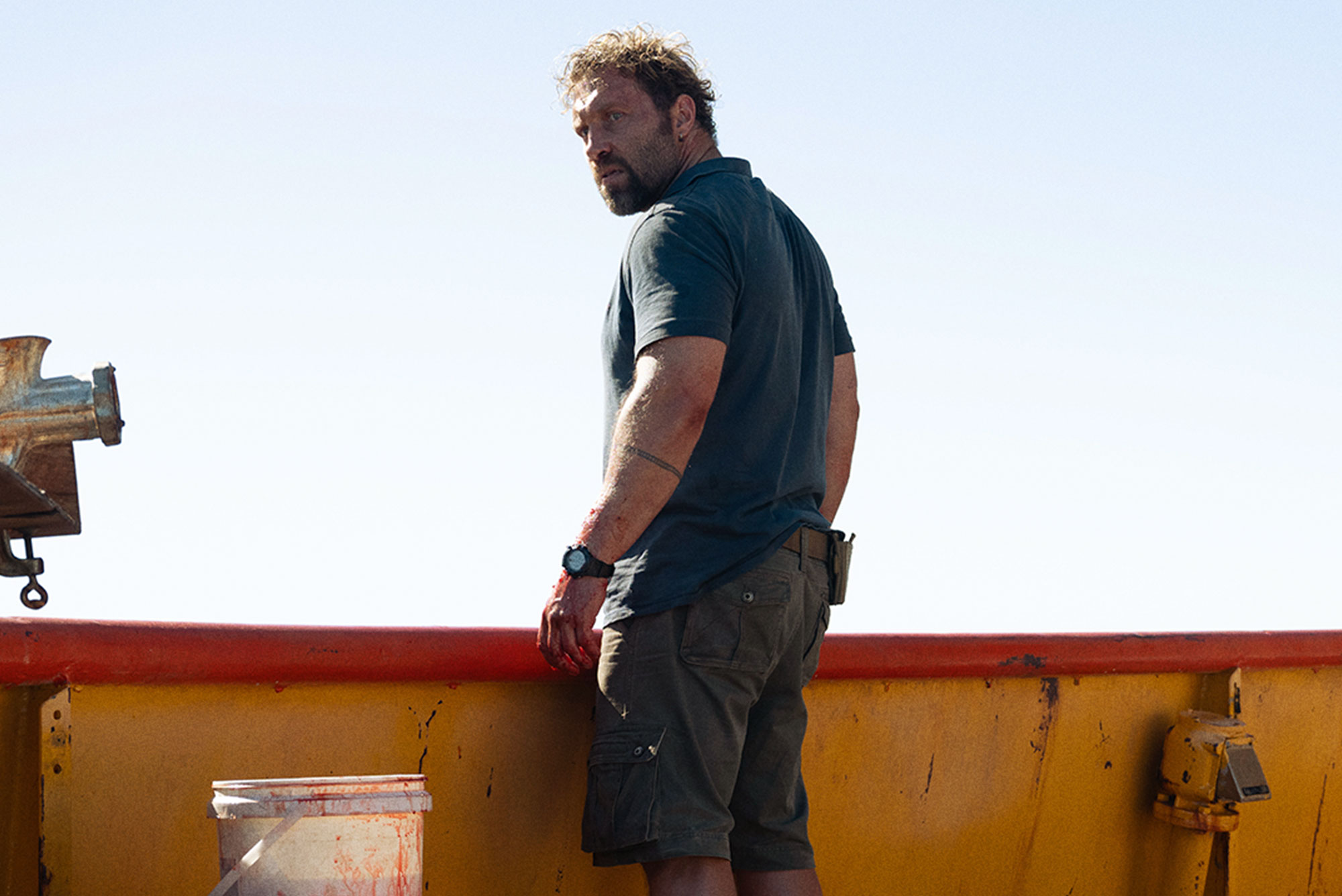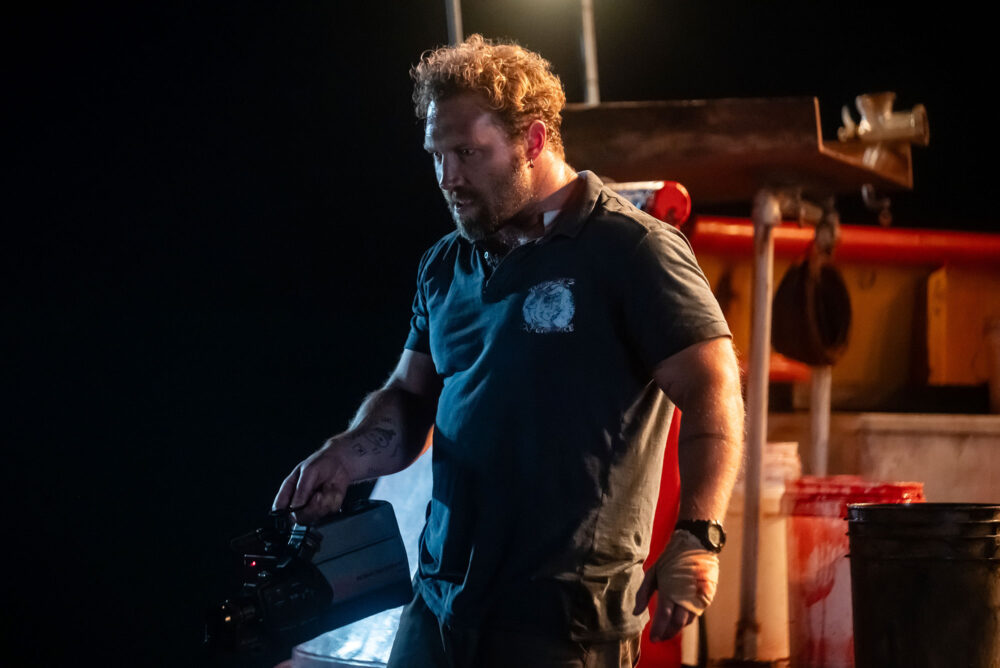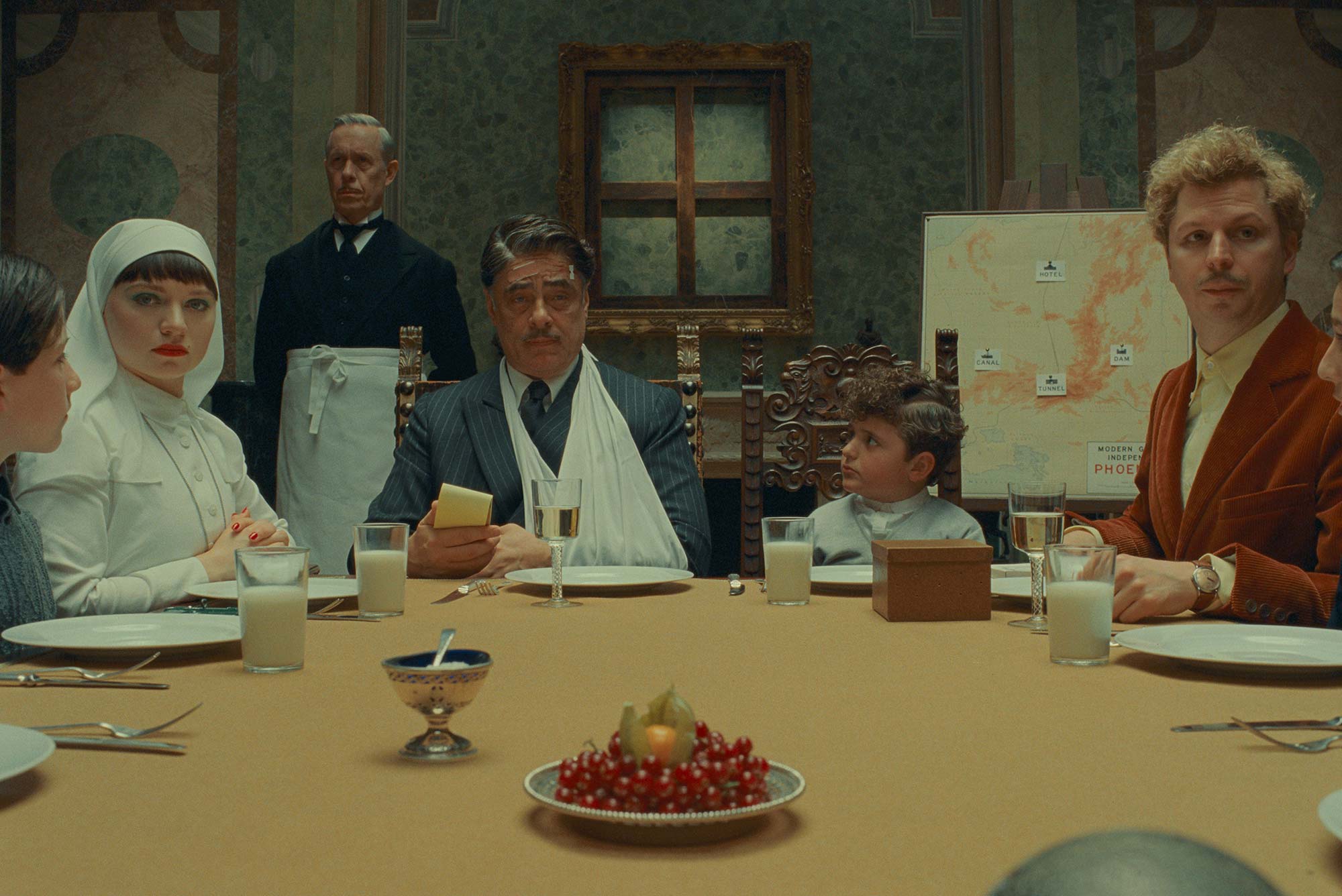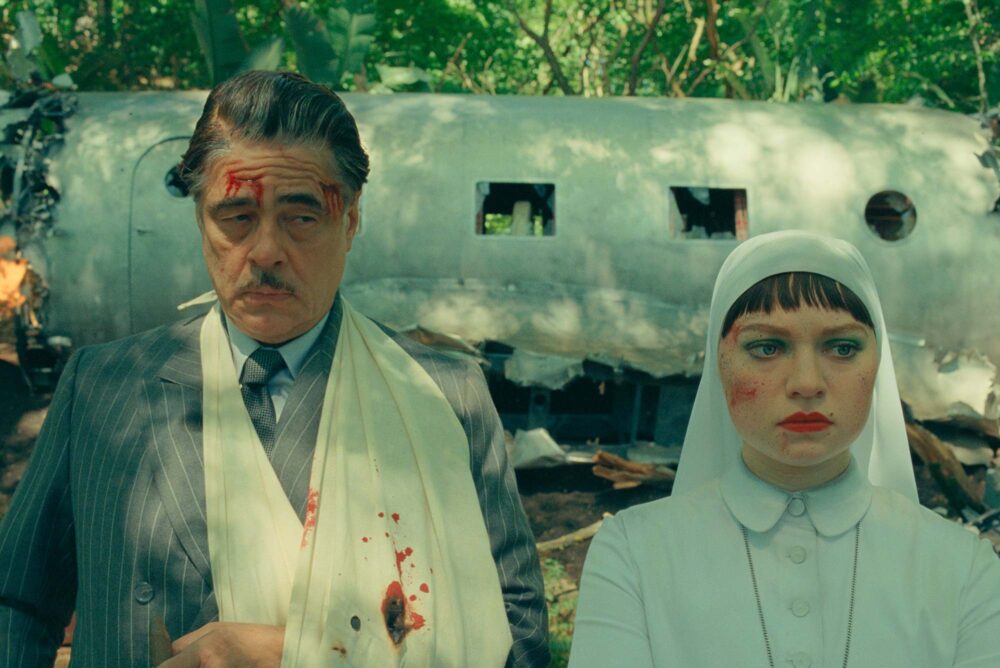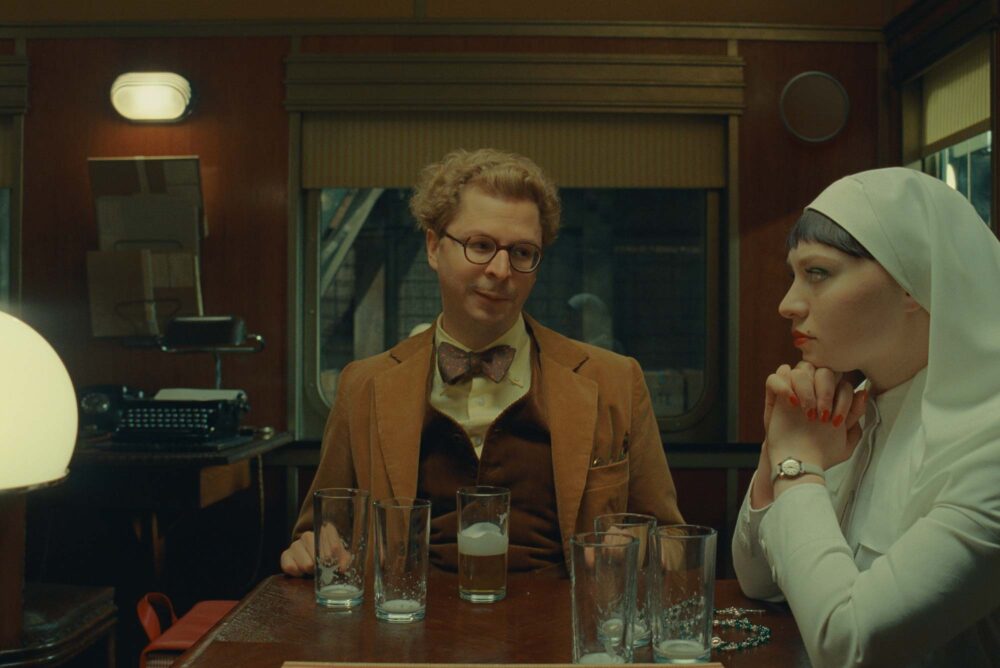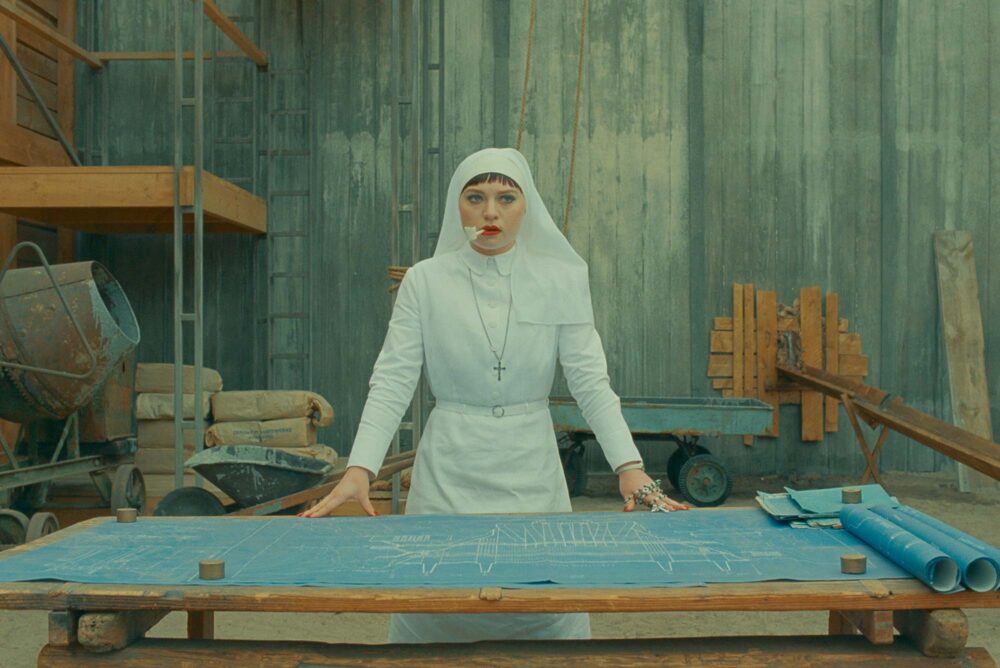Words by JANE CROWTHER
Noah Baumbach and Emily Mortimer’s gentle ribbing of Hollywood begins with deliberate artifice: movie star Jay Kelly (Clooney leaning all the way into his public persona) is filming his martini shot on his latest flick, a death scene set on New York’s waterfront but actually carefully concocted in a Hollywood soundstage. As he utters his last line he asks for his co-star dog to come in later, and for another take. His team – Adam Sandler’s manager, Laura Dern’s publicist, Mortimer’s HMUA – flutter around him. But when he shuts himself in his trailer we see his interior life; one where he admits his existence doesn’t feel real, that he nurses regret, that ‘all my memories are movies’. After a failure to connect with his teen daughter (Grace Edwards) and a stinging meet-up with an old roommate (a scene-stealing Billy Crudup) Jay reassesses his cosseted, infantalised life, deciding to embark on european odyssey as he reflects on relationships with his neglected elder daughter (Riley Keogh, also bringing personal insight to her role), a co-star (Eve Hewson) and his acting class friend (Louis Partridge). Along the way there’s meltdowns, a lot of cheesecake, kookie Italians, central-casting Brits and a tone that veers between absurd and nostalgic, with nods to Fellini and Wild Strawberries. Baumbach deploys physical sets to interplay between present day and memory, and a heightened sense of realism that feels intentionally fake to reflect the inauthenticity that has crept into all aspects of Kelly’s life. Is his train ride through Italy really filled with morose German cyclists and cor blimey tourists or is this how he’s filtering it for a story on a late night talk show?


Based on Baumbach and Mortimer’s own experiences in the film industry (they met when Mortimer’s son, Sam, starred in White Noise), Jay Kelly recalls other insider-baseball studies of Tinseltown (Entourage, The Player, The Studio) without particular bite. This is an affectionate look at coddled talent who say they are always ‘alone’ just as staff hand them a drink, the way that famous, wealthy people expect full commitment and loyalty from their entourage without giving it back, the disconnect of a star complaining how hard they work while living in a palatial mansion and travelling by private jet. When it’s the affable Clooney essaying such narcissism Kelly’s selfishness and black hole effect on his team’s lives reads as somewhat charming and unintentional. Dressed in perfectly pressed suits, that world famous crinkly smile hiding the pain beneath, Clooney walks a performance tightrope of showing everything while simultaneously holding back. A moment where he watches his real back catalogue of film manages to convey the wonder of cinema, the bewilderment of a star whose life is chronicled by projects, and the impressive career of Clooney to date. Aiding him in this endeavour is Sandler, rumpled perfection as manager Ron who facilitates, parents and apologises for his client while trying to juggle his own work/life balance. He has a minor love story with Dern but the real romance here is the one between Ron and Jay, both men having spent decades married to each other as a work family, missing out on personal commitments with their real nearest and dearest. And it’s seeing Jay through Sandler’s teary, loving eyes that helps us an audience connect with him despite his shortcomings. Though somewhat meta in its depiction of the star ecosystem, Jay Kelly is generalist in poking fun; at its best it showcases the finesse of its players. This is particularly true of Crudup who is masterful in a scene where he Method-reads a menu. Across the table, Clooney/Kelly’s eyes light up in delight at the magic trick performed in reciting entrees and it’s one of several moments that celebrate the artistry of cinema, as well as the sense of community and awe fostered in those who love to sit in the dark and watch it.

Words by JANE CROWTHER
Photographs courtesy of Netflix
Jay Kelly premiered at the 82nd Venice Film Festival and is in cinemas now

